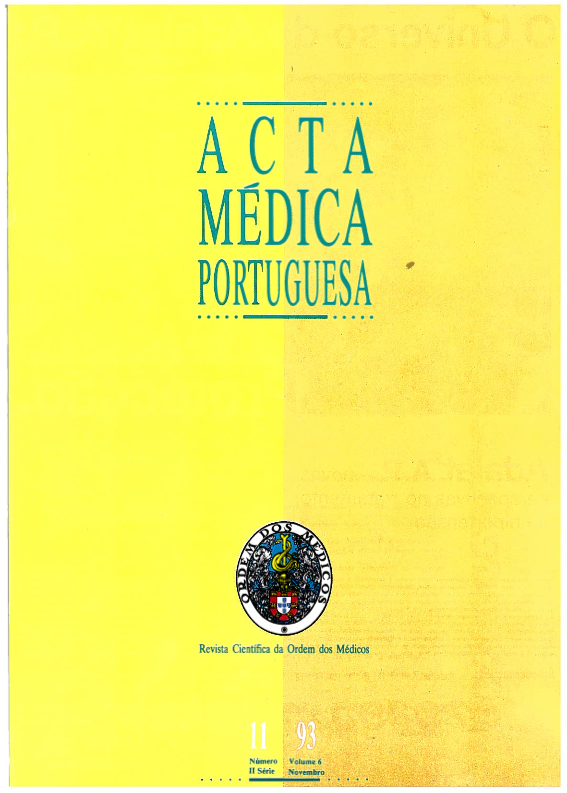2 days of drug dependence consultation in Portugal.
DOI:
https://doi.org/10.20344/amp.3159Abstract
This paper reports the results of a survey of all State outpatient clinics for drug addiction in Portugal. Two consecutive days of consultations in November 1992 were considered. The Health Ministry's SPTT--Service for Drug Addiction Prevention and Treatment--coordinates the activity of all the centres and promoted the inquiry. The main objective was to simultaneously evaluate the state of the population under treatment in what concerns the therapeutic methods used, their clinical costs and efficacy. This methodology may allow us to draw an accurate portrait of the Portuguese drug addiction public health program. We received 535 answers which we estimate to be two thirds of the consultations. Heroin abuse is the main problem in 91.3% of all cases plus 3.9% that associate heroin and cocaine abuse. Cannabis comes next with 2.1%, alcohol abuse with 0.8% and benzodiazepines with 0.5%. In what concerns the clinical results, 60% were abstinent: 15.1% were abstinent for longer than six months, 9.9% for longer than three months but less than six months, 19.8% were abstinent for less than that but longer than a month and 14.5% for longer than a week but less than a month. The main therapeutic approaches were psychotherapeutic in 54.1%, psychopharmacologic in 42.1% and socio-therapeutic in 2.3% of the cases. The author presents further data and discusses the results and their clinical implications.Downloads
Downloads
How to Cite
Issue
Section
License
All the articles published in the AMP are open access and comply with the requirements of funding agencies or academic institutions. The AMP is governed by the terms of the Creative Commons ‘Attribution – Non-Commercial Use - (CC-BY-NC)’ license, regarding the use by third parties.
It is the author’s responsibility to obtain approval for the reproduction of figures, tables, etc. from other publications.
Upon acceptance of an article for publication, the authors will be asked to complete the ICMJE “Copyright Liability and Copyright Sharing Statement “(http://www.actamedicaportuguesa.com/info/AMP-NormasPublicacao.pdf) and the “Declaration of Potential Conflicts of Interest” (http:// www.icmje.org/conflicts-of-interest). An e-mail will be sent to the corresponding author to acknowledge receipt of the manuscript.
After publication, the authors are authorised to make their articles available in repositories of their institutions of origin, as long as they always mention where they were published and according to the Creative Commons license.









